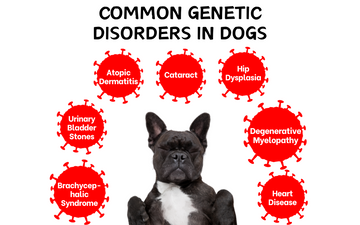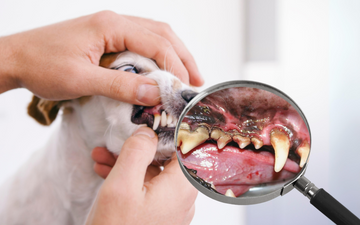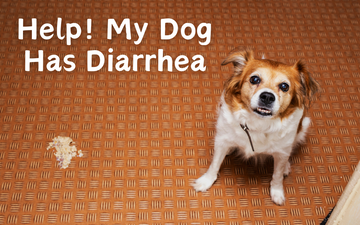
The mere thought of our dogs falling ill is stress-inducing. We want everything perfect from their diet, exercise, and care to ensure they live their best lives. However, certain breeds are more predisposed to specific diseases despite our best efforts. Identifying them early empowers us to protect our furry friends through preventive measures and timely veterinary attention. In doing so, we provide them with the best chance at a healthy and happy life.
Atopic Dermatitis (Allergies)
Atopic dermatitis is often linked to genetics and is a chronic allergic skin condition.
It typically starts between 6 months and 3 years of age, with some breeds, like golden retrievers, being more prone to it as they have a weakened skin barrier, making them more susceptible to allergens and irritants penetrating their skin. Dogs exhibit itching, particularly around the eyes, muzzle, ears, and paws.
Consider incorporating supplements rich in omega-3 fatty acids, which can support skin health and reduce inflammation.
Urinary Bladder Stones
While any dog can develop bladder stones, certain purebred dogs like Dalmatians, Newfoundlands, Bichon Frises, and Miniature Schnauzers are genetically predisposed.
You may observe signs like straining to urinate, frequent urination, and blood in the urine.
Let the dog drink more water to dilute urine and reduce the risk of stone formation.
Limit dog treats and table scraps, as they are high in magnesium and it can contribute to struvite stone formation.
Brachycephalic Syndrome
This congenital respiratory condition primarily affects breeds with flattened faces, such as English Bulldogs, French Bulldogs, Pugs, Boston Terriers, and similar breeds.
Brachycephalic dogs may show noisy and labored breathing, especially during exercise or in warm weather. They may snore loudly, snort, or make other respiratory noises while awake or asleep. Some dogs may have difficulty swallowing and may regurgitate dog food or water.
There is nothing much a pet parent can do about it but they should avoid overexerting their brachycephalic dogs in hot weather and provide a cool and well-ventilated environment, also weight management is important in these breeds.
Hip Dysplasia
German shepherds, Labrador Retrievers, Rottweilers, and Boxers hip dysplasia is more commonly observed in these breeds, but it can affect dogs of any size or breed.
You may see difficulty in mobility, especially rising or lying down, climbing stairs, jumping, and running.
Only nutrition cannot prevent hip dysplasia, but it plays a crucial role in managing the risk factors associated with the condition, Provide your puppy with a balanced diet that meets their specific nutritional needs during their growth phase.
Degenerative Myelopathy
A progressive and non-painful neurological disease that affects dogs, primarily in their later years of life. It primarily affects the spinal cord, causing a gradual deterioration of the nerves that control a dog's hind limbs.
It typically occurs in dogs aged more than 8 years, although it can start earlier in some cases.
Antioxidants, such as vitamins C and E, can help reduce oxidative stress, which is associated with degenerative myelopathy.
Supplements like glucosamine and chondroitin can support joint health and mobility.
Heart Disease
Doberman Pinschers, Great Danes, and Boxers are prone to conditions that can lead to heart failure, arrhythmias, and other cardiac symptoms.
Dogs that are predisposed to heart disease benefit from a low-sodium (low-salt) diet.
Supplements like omega-3 fatty acids, commonly found in fish oil supplements, can have anti-inflammatory properties and may support heart health.
Cataract
Clouding of the eye lens leads to partial or complete blindness, very common in Boston Terriers and Siberian Huskies.
Adequate zinc intake is important for eye health and the best eye health is supported by adequate intake of vitamin A in food.
Foods rich in antioxidants, such as vitamins C and E and beta-carotene, can be beneficial. Look out for food using ingredients like dark leafy greens, carrots, blueberries, sweet potatoes, and spinach.
While certain breeds are predisposed to genetic conditions, it's important to remember that not every dog within these breeds will necessarily suffer from these issues. Consulting your veterinarian for guidance on breed-specific health concerns is crucial. Maintaining a well-balanced diet and providing regular exercise can help support your dog's overall health and potentially reduce the risk or severity of genetic conditions. Responsible breeding practices also play a role in reducing the prevalence of these conditions in susceptible breeds.






